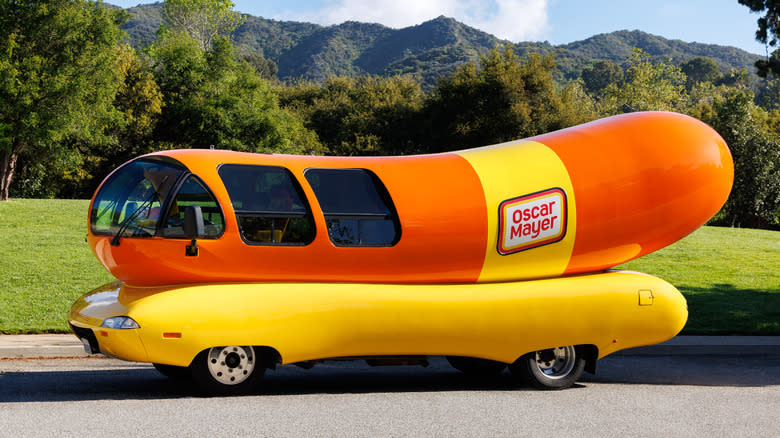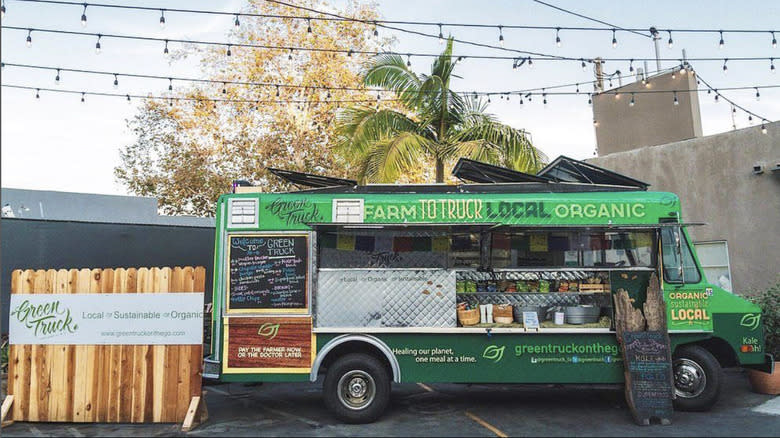How Oscar Mayer Introduced America To Modern Food Trucks In The 1930s

Love at first bite is the only way to describe the hold food trucks have over the stomach of modern America, so much so that they've become an iconic part of American food culture with myriads of food truck festivals to stick your fork into. So perhaps it's unsurprising to learn that the food truck phenomenon was a domino effect that arose from another culinary heavy hitter — the hot dog. Specifically, a 27-foot-long wiener on wheels.
In 1936 this giant wheeled hot dog, dubbed the "Wienermobile," started roaming the highways slinging bunned sausages as a marketing strategy for Oscar Mayer, complete with all the fanfare of hot dog-shaped whistles which, of course, were called Wiener Whistles. In 2023 the motorized hot dog received a glow-up and today entire fleets of "Frankmobiles" (with Frank Whistles) continue to make the rounds.
Before Oscar Mayer's gargantuan wiener sparked an industry worth over $1 billion in 2024, the most mobile snack you could get your hungry mitts on would have come from a converted wagon, an invention by cattleman Charles Goodnight. This "chuck wagon" experience, however, was more akin to a pantry raid and a far cry from the cooked-to-order meals today's food trucks serve. Once "red hots" were on the road, however, the food truck industry as we know it began to take shape.
Read more: Common Mistakes Everyone Makes With Hot Dogs
From Road-Worthy Wiener To Saving The World

Hot on the tire tracks of the proverbial sausage were ice cream trucks, taco trucks, and Korean BBQ trucks. Even chains have since jumped on board — Shake Shack has a food truck for catering parties. The proliferation is a testament to the industry's willingness to get creative plus consumer demand for food with a side of strong community connection. It's worth noting, too, that a study has revealed how food trucks are affecting restaurants and it isn't a cannibalism situation.
Happily, putting a giant sausage on the road wasn't the peak of food truck ingenuity. From savvy micro kitchen engineering and a mastery of team cohesion in small spaces to savvy social media marketing, food trucks are an opportunity for chefs to cut loose from the constraints of the classic narrative split between sit-down restaurants and the sticky floors of fast food eateries.
And the creative flex hasn't stopped with kitchen logistics and menu architecture, many food trucks are now turning their attention to solving massive societal problems like food waste and global hunger. For example, the adoption of a circular economy — where surplus ingredients and second-tier farmer produce is turned into top-notch meals for the hungry — is what makes Eleven Madison Park's food truck unique, and Los Angeles' organic Green Truck is run on recycled vegetable oil.
Read the original article on Tasting Table.


